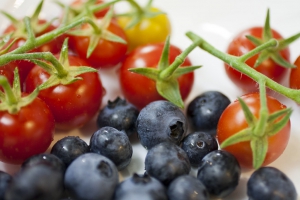Salicylates
Dr Alex Petrushevski
21/5/2020

Salicylates are organic chemicals that contain Salicylic acid and are found naturally in many herbs, vegetables, fruits, and nuts. They are also found in some medications, the most common being aspirin. If we eat salicylates our body has to detoxify and clear away these chemicals before they accumulate.
Most people are able to process salicylates without trouble, but some people have a limit to how much salicylate they can process, and if they exceed this they can experience inflammatory or allergic symptoms. If you are sensitive to salicylates and inadvertently increase your salicylate intake on a low carbohydrate diet, you may notice some issues.
Symptoms attributed to salicylate intolerance include:
- Eczema / skin rashes
- Chronic sinus congestion and nasal polyps
- Asthma and wheeze
- Headache and migraine
- Flushing and low blood pressure
- Diarrhoea and irritable bowel syndrome
Common high salicylate foods include:
Fruits most fruits but particularly
- Apricots
- Berries (all types)
- Grapes
- Oranges
- Raisins
Vegetables:
- Capsicum
- Chili
- Zucchini
- Gherkins
- Radish
- Tomato
Nuts:
- Almonds
- Peanuts
Spices:
- curry spices
- Paprika
- Cinnamon
- Ginger
- Honey
- Mint
- mustard
Oils
- coconut oil
- olive oil
If you are on a low carbohydrate diet and are troubled by some of the symptoms of salicylate intolerance, there may be some foods you didn’t realise were the culprit. A review with a doctor or dietitian familiar with low carbohydrate diets can be invaluable in optimising your long term health and helping you to create the best diet for you.
This article provides general information from the current scientific evidence base and clinical judgement of the author. It is designed for educational purposes only and should not be substituted for medical advice. The author recommends you seek personally tailored support from a qualified healthcare practitioner before undertaking any major lifestyle change.



